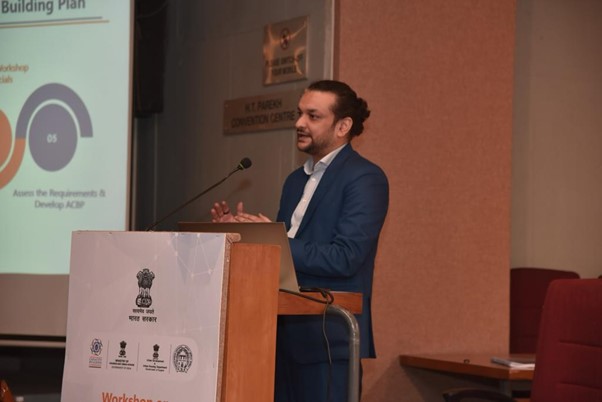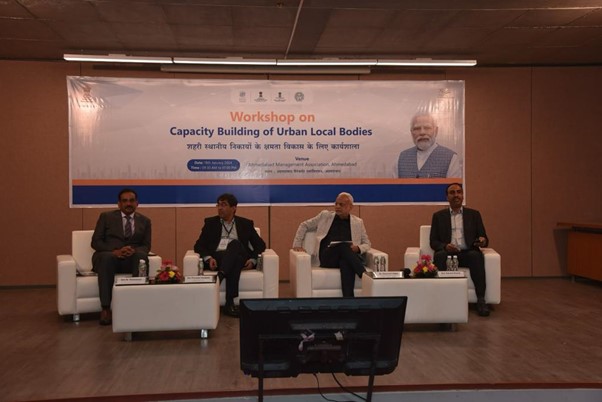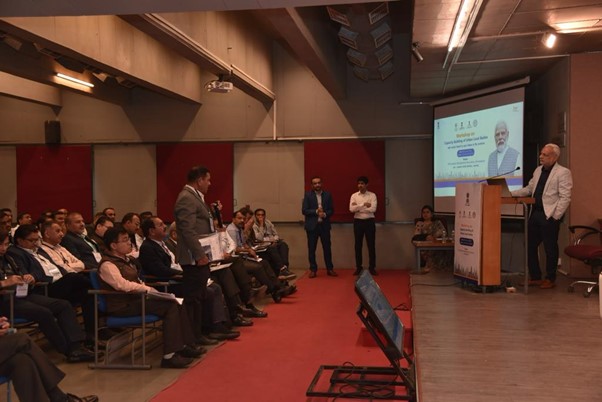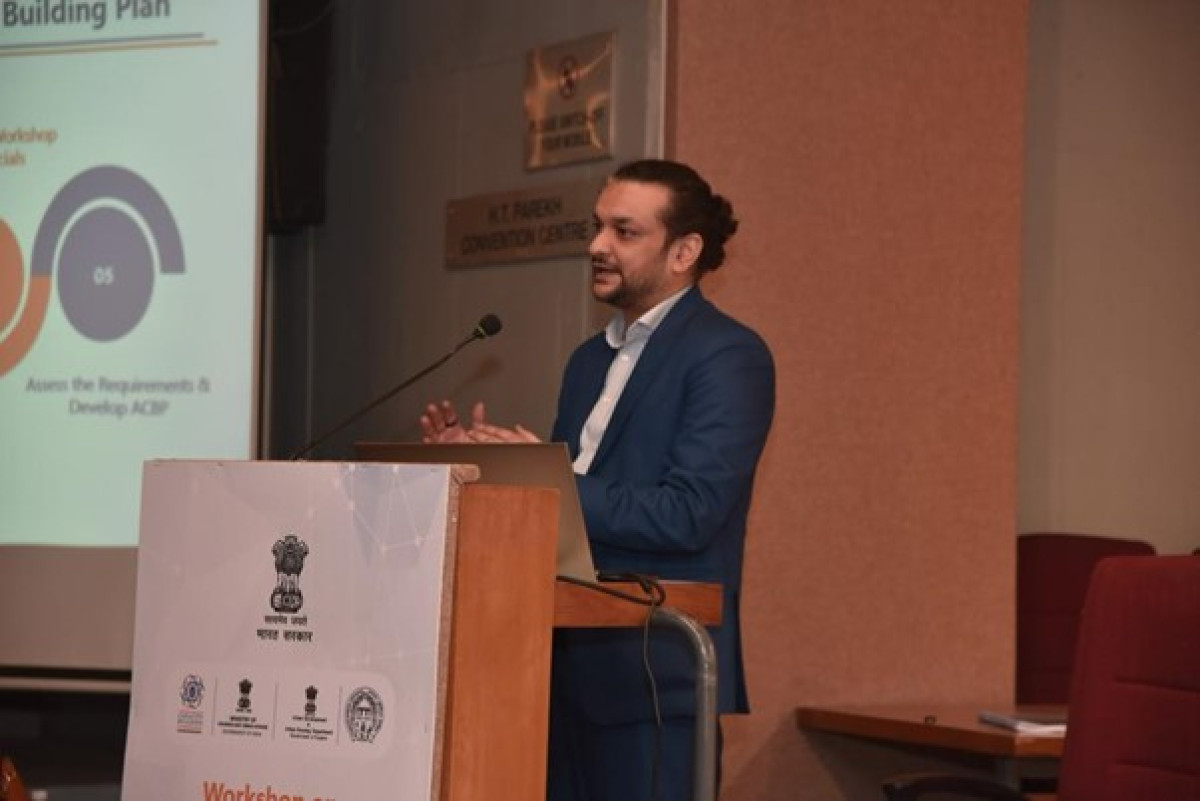The Capacity Building Commission (CBC) in collaboration with the Ahmedabad Municipal Corporation organised a workshop on Capacity Building of Urban Local Bodies, aligning with the unified approach for ULBs under Mission Karmayogi. This pivotal workshop aimed to foster a unified approach to capacity-building for Urban Local Bodies (ULBs) across India, emphasizing cross-learning among ULBs.
The event, attended by 30+ ULBs, government officials, Municipal Commissioners, and senior officials who showcased productive interaction and discussions. The key speakers of the workshop were Dr. Hasmukh Adhia, Principal Advisor to CM, Gujarat, Shri Praveen Pardeshi, Member (Admin.), CBC, Shri Ashwini Kumar, Principal Secretary, UDD, Shri. M. Thennarasan, Municipal Commissioner, AMC and Shri Prakash Kumar (Red. IAS’85), CEO, Wadhwani Institute of Technology & Policy
The key points highlighted by the panel included:
· Dr. Hasmukh Adhia underscored the significance of cities due to the rising urban population. He established a correlation between Urban Local Bodies' (ULBs) responsibilities and the growing urban population. Dr. Adhia recommended implementation techniques for effective ongoing workforce training. Emphasis was placed on instilling a sense of responsibility across all staff levels for a conducive learning environment. Increased focus on training at all levels was suggested to ensure tangible outcomes.
· Shri Ashwini Kumar highlighted shortages and challenges faced by Urban Local Bodies (ULBs). Advocated for a bottom-up approach, leveraging technology, and fostering cross-learning initiatives.
· Shri Praveen Pardeshi emphasized the foundational role of cities and positioned ULBs as pivotal implementation entities. Shared insights from six pilot ULBs involved in Annual Capacity Building Plans (ACBPs). Stressed the importance of cross-learning among ULBs and encouraged learning from past Annual Credit and Budget Plans (ACBPs). Highlighted essential courses such as Administration and Governance, IT and Computer skills, and Project Management with potential applicability across various ULBs.
3. Objective of the Workshop:
i. Discuss the approach and methodology for preparation of Annual Capacity Building Plans (ACBP) for ULBs
ii. Demonstrate implementation of Capacity Building Plans of Pilot Cities- Ahmedabad, Rajkot, Pune, Nagpur
iii. Demonstrate training modules for municipal staff available on the iGOT platform.
iv. Share best practices urban local bodies and course offered by training institutions to enhance capacity building.
v. Devise approach on Capacity Building of Indian cities for Naya Bharat.
The key achievements of the workshop included:
i. The workshop successfully raised awareness about the processes and stages involved in crafting an annual capacity building plan for over 30 Urban Local Bodies (ULBs).
ii. The workshop facilitated understanding of the iGot Platform, covering its processes, registration, and utilization for ULBs.
iii. Insights from the Annual Capacity Building Plans (ACBPs) developed by Pune and Rajkot, two of the six pilot ULBs, were shared. This facilitated the exchange of challenges encountered by ULBs during ACBP development, along with their observations and key learnings from the process, aiming to ease implementation.
iv. It also facilitated the sharing of best practices and resources among ULBs and Training Institutes. The collaborative effort created a framework and approach applicable to other ULBs in the future, promoting a culture of cross-learning.
v. In the workshop, Primus Partners presented a toolkit crafted to guide the formulation of capacity building plans for Urban Local Bodies (ULBs).
vi. The workshop presented the concept of utilizing artificial intelligence (AI) for Urban Local Bodies (ULBs), incorporating an overview of various use cases. Mr. Prakash Kumar effectively clarified queries raised by ULB representatives, fostering an enthusiastic reception. The representatives demonstrated keen interest in implementing this newfound knowledge within their respective ULBs, recognizing the potential for achieving optimal results.



- 28 January 2026
- 03:23 AM to 03:23 AM IST


